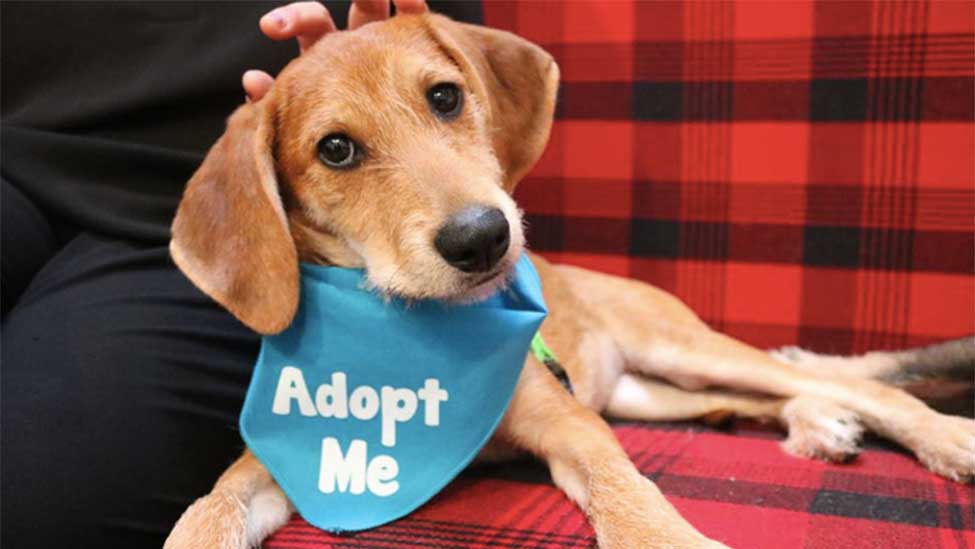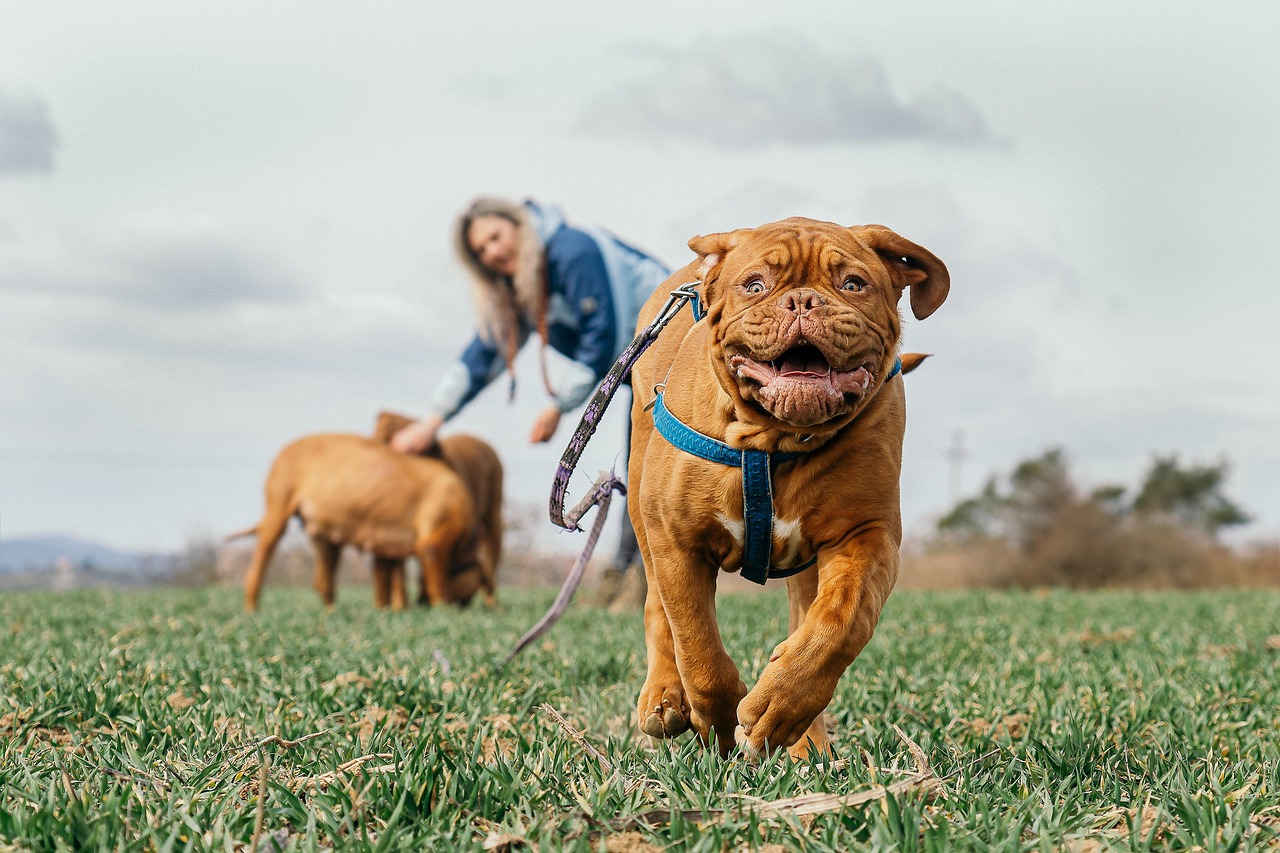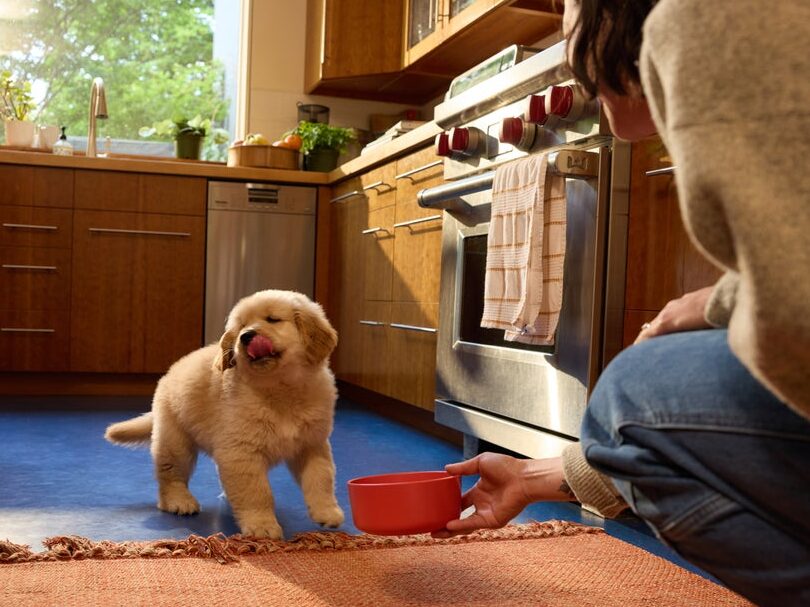Hey Ollie blog readers! We’re offering you an exclusive 60% OFF your starter box! Try now!
Want some tried and true advice from people who have been there? We asked members of the Ollie team, who are also parents to adopted pups for their best advice, and here is what they had to say:
Adoption advice from Ollie pet parents
"I wish I knew that an adopted dog’s quirks are no reflection on you as their current owner and you can work through them together to create an even stronger relationship."- Katherine (Mom to Desi)
"Adopted pups truly need to be taught. They can’t be expected to just know what you’re asking of them. It’s a full-time job and you are their whole world. Take the time to understand them and their language. I didn’t realize that dogs’ have different "love languages," like humans. Zuko loves to playfully bite and his happiness/rewards come from play. To ensure he’s the best dog, I cater to his desires and play incessantly with him and used that as a tool to train him. With Indie, she prefers food. It’s important to understand what your dog responds to, rather than what you want them to respond to." – Meghan (Mom to Zuko and Indie)
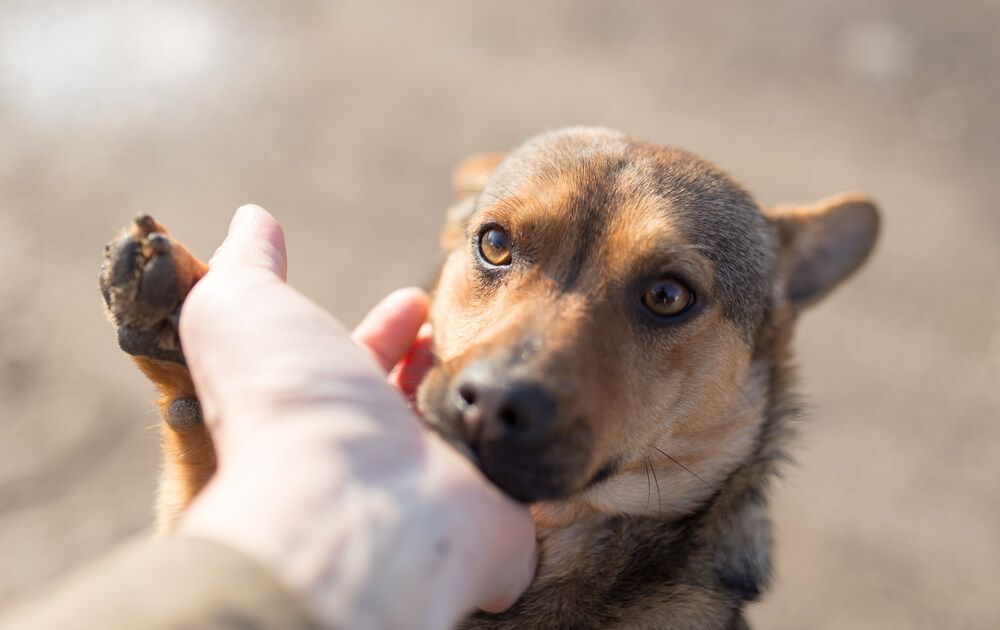
"I adopted a tripawd (three-legged) dog, and I wish I had known to research more of the issues tripawds face so I would have been better equipped to support my pup" – Dani (Mom to Gibbs)
"How important consistency and patience is with rescue dogs. My pup in particular came from a very unstable environment, bouncing between shelters and a foster situation before finally coming to her forever home. Giving her a consistent routine — diet, exercise, training, and snuggling — was the only way we were able to get her to trust us and get over some of her food insecurities." – Emily (Mom to Sesame)
"I wish I had known that once you start adopting you’ll probably want more than one and you’ll never want to leave your house again." – Crystal (Mom to Posh, Baby and Homer)
More tips for adopting the right dog for you and your family
1. Consider your lifestyle
Whether you’re looking to adopt a specific breed or going to bring home a pup that needs a DNA test to determine exactly what breeds it’s made up of, you will want to consider your lifestyle. While getting a general sense of a purebred’s temperment first may be a little easier, there are still plenty of things you can quickly learn about a mixed breed. These include things like their size (a 150 pound Great Dane or Mastiff mix won’t be suited for your apartment), how much they might shed, and how much activity they will need. A small, older Shih Tzu for example will need significantly less exercise than a Greyhound or Border Collie.
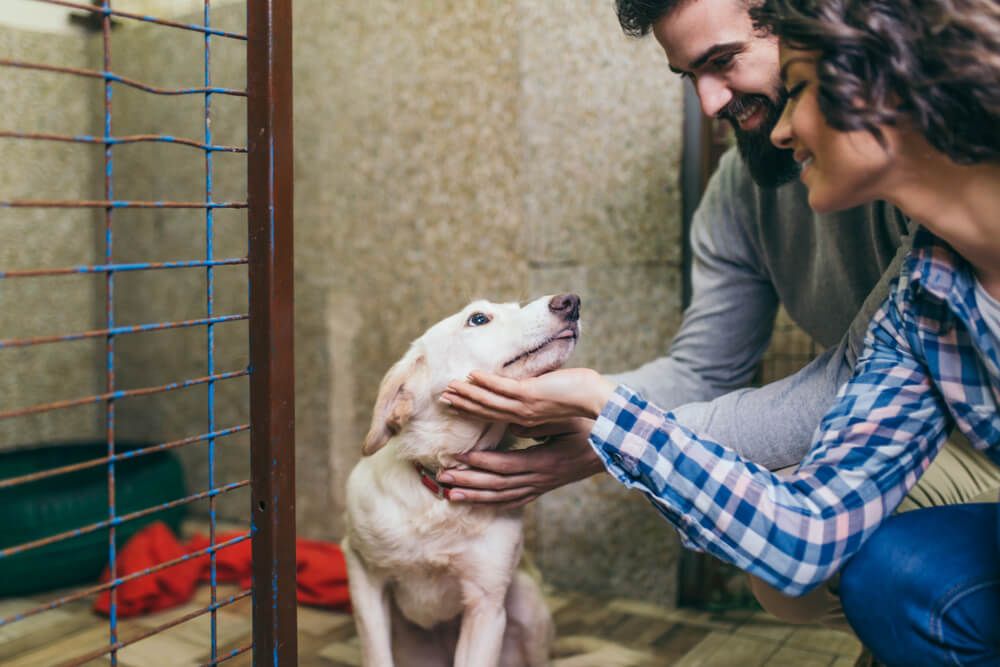
If you’re going to a shelter or rescue to meet some pups, consider thinking of some non-negotiables first. For example, you don’t want a dog younger than two or older than six or you really want a young puppy. You also might want to consider whether you want a small, medium or large dog and if you want a high energy dog or a pup that is more calm.
2. Make friends with the foster
Shelters and rescues can be a stressful place for any dog. This is why many shelters rely on the generosity of foster families to give their pups a break from the shelter as well as a place to relax and learn to be a dog or review some basic training.
Pups who have spent time in foster care may have a head start on things like house and crate training and basic manners like walking politely on a leash. The foster parents will also be able to tell you more about the dog’s personalities and temperments than you would be able to learn from the shelter. So, feel free to ask th foster as many questions as you can think of and learn from their experiences.
3. Bring everyone in the family to meet any potential pups
Before you fall in love with a dog and bring them home only to have your partner, child or another resident pet dislike them, consider having a meet and greet at the shelter (or somewhere else neutral) first. This way everyone has a chance to meet and feel each other out.
While a resident pet may not be over the moon about a new housemate, with some slow introduction and careful supervision they may grow to tolerate (or even like) the new pet.
4. Budget for emergencies
Spending time in a shelter can put pups at risk for issues like kennel cough or other communicable diseases. Its worth having your pup see your pet ASAP to get checked out after bringing them home to check for any minor (or major) medical issues. You may have some vet bills right off the bat that you weren’t anticipating. It’s good to be prepared for this possibility. If you are adopting a pup with a known long term medical condition your vet can help you plan for their ongoing care and make sure their condition is well managed.
5. Allow your new best friend some time to decompress
One thing expeienced adopters will always tell you is that coming out of a shelter or rescue, dogs need time to decompress. A lot of time actually. So don’t plan much for your new pup’s first few days in your home. While your friends and family might be very eager to come meet the new addition to your family, try to hold off for a bit. Some dogs who come from busy shelters may sleep for the first few days in your home. They also may be nervous and not eat or go to the bathroom on a regular schedule at first. Having no expectation of how your dog should behave and giving them plenty of time to acclimate and learn the "rules" of the house will set you both up for a better relationship and long term success.
Adopting a dog is a big, but rewarding responsibility. Your new pup will be your best friend for the rest of their life – which could be up to 18 years depending on the age and breed of the dog you bring home. We hope these tips have you feeling more excited (and more prepared) to rescue. For additional resources, your shelter, rescue and local trainers can also provide guidance.
The Ollie blog is devoted to helping pet parents lead healthier lives with their pups. If you want to learn more about our fresh, human-grade food, check out MyOllie.com.
Tagged As:

The nutrition your dog needs,
the food they want.

Enjoying our articles? Subscribe our Newsletters and get new articles directly to your inbox
You might also like
23 September 2025
6 MINS READ
Back to School: Training Your Dog at Any Age
As we hit back-to-school season rolls around, it’s not just kids who benefit from sharpening their skills and learning something new—our dogs can, too! Training isn’t limited to puppies or p…
by Ollie Pets
23 September 2025
7 MINS READ
Lace Up and Leash Up: A Beginner’s Guide to Running with Your Dog
Running is one of the simplest ways to stay active, and it’s even better with a canine companion. Not only does running with your dog keep you both in great shape, it also strengthens your bond …
by Ollie Pets
13 May 2025
8 MINS READ
Puppy Training Guide & Behavior Timeline
Bringing home a puppy is pure magic. It’s also pure chaos—tiny teeth, zoomies, accidents in the house, and moments that make you wonder if you’re raising a future genius or a tiny tornado. …
by Ollie Pets
